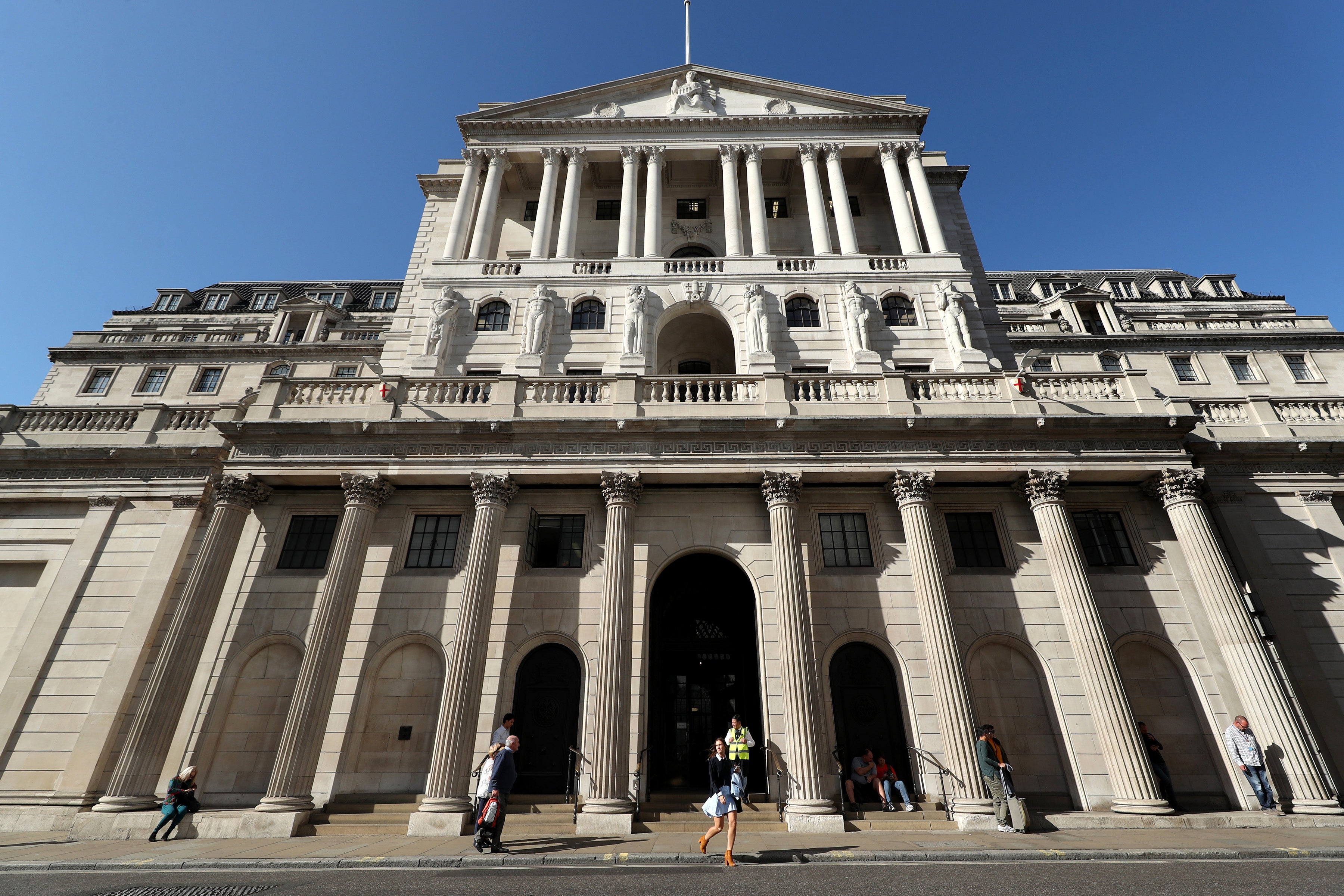Bank warns inflation could soar to 10-year high, but keeps rates on hold
Its latest economic forecasts show it expects inflation, currently at 2.5%, to pick up to 4% at the end of 2021.

Your support helps us to tell the story
From reproductive rights to climate change to Big Tech, The Independent is on the ground when the story is developing. Whether it's investigating the financials of Elon Musk's pro-Trump PAC or producing our latest documentary, 'The A Word', which shines a light on the American women fighting for reproductive rights, we know how important it is to parse out the facts from the messaging.
At such a critical moment in US history, we need reporters on the ground. Your donation allows us to keep sending journalists to speak to both sides of the story.
The Independent is trusted by Americans across the entire political spectrum. And unlike many other quality news outlets, we choose not to lock Americans out of our reporting and analysis with paywalls. We believe quality journalism should be available to everyone, paid for by those who can afford it.
Your support makes all the difference.The Bank of England has warned inflation is set to surge to its highest level for a decade this year as the UK economy recovers from the pandemic.
Latest economic forecasts from the Bank show it expects inflation, currently at 2.5%, to pick up to 4% at the end of 2021.
This is double the Bank’s target and the highest level of UK inflation since the end of 2011.
But the Bank insisted that surging prices will only be temporary and inflation will return to the 2% target in the second half of 2023.
Minutes of the decision showed members of the Bank’s Monetary Policy Committee (MPC) voted unanimously to hold rates at 0.1%.
Bank governor Andrew Bailey said: “There are good reasons to suggest that above-target inflation will be temporary.
“But if this outlook appears to be in jeopardy, the MPC will not hesitate to act.”
One policymaker – Michael Saunders – voted to cut the Bank’s £895 billion bond-buying quantitative easing (QE) programme by £45 billion amid fears over rocketing inflation, though he was outvoted 7-1.
The Bank’s former chief economist Andy Haldane had been a lone voice calling for a £50 billion QE cut before he left the committee after the June meeting.
However, the MPC stressed that some “modest tightening” of monetary policy is likely to be needed in due course to cool inflation, signalling that action may be on the way over the next two years.
The Bank kept its growth forecast at 7.25% for 2021, as it said gross domestic product (GDP) was set to have risen by a better-than-expected 5% in the second quarter, but slow to around 3% – weaker than first forecast – in the third quarter.
Its latest set of quarterly forecasts shows it expects the economy to then grow by 6% in 2022 and by 1.5% in 2023, compared to previous forecasts of 5.75% and 1.25% respectively.
The Bank said: “GDP is projected to recover further over the remainder of the year, reaching its pre-pandemic level in (the fourth quarter of) 2021, with demand growth boosted by a waning impact from Covid.”
The Bank’s downgrade to third-quarter growth forecasts comes as the Delta Covid-19 variant – and the so-called pingdemic – has affected spending following a surge in pent-up demand between April and June as restrictions eased.
But the Bank offered some cheer on the UK jobs market, saying unemployment has already peaked at 4.8% and would not rise further even when the furlough support scheme ends in September.
In fact, Mr Bailey said the problem is now one of getting people back into work as firms face hiring difficulties and vacancies soar.
The Bank’s Monetary Policy Report also saw it outline its approach to removing economy-boosting measures when necessary, saying it would start to unwind QE when the interest rate reaches 0.5%, which is lower than the previous 1.5% threshold.
ING economist James Smith said: “The change in threshold is not too surprising, but the finer details possibly hint at a more rapid unwind than might have been expected.”